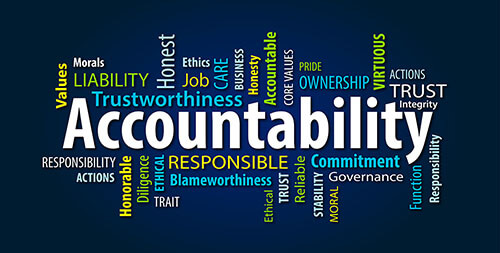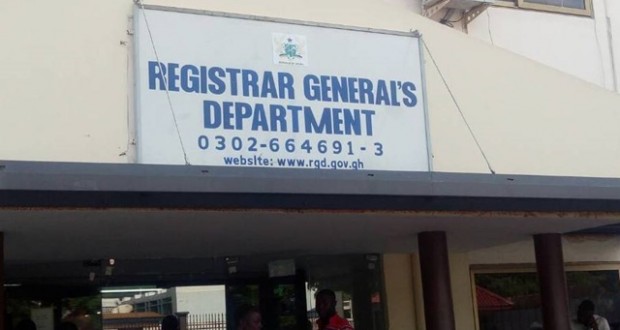Earlier, we looked at the “somewhat” controversial Section 177(1)(c) of the Companies’ Act, 2019 (Act 992) which deals with the disqualification of a person as a director for offences that the persons has been convicted of; and those that the person has not been convicted of.
The aspect of the provision regarding the disqualification of a director or person for an offence he has not been convicted of seems to make people very uncomfortable. You find people asking whether it is constitutional for a person to be disqualified from acting as a director on a charge he has not been convicted of. The critics of this provision go on to ask “Isn’t that provision in breach of the presumption of innocence?”. As I pointed out, there is nothing unconstitutional or untoward of disqualifying someone on the basis of an offence he or she has not been convicted of. This is because, during the disqualification proceedings, the court gets an opportunity to look into the merits of the charges and form an independent opinion of the charge. The essence of including “non-convicted offences” is to ensure that separate proceedings are not commenced just to prove the guilt of the accused person before the disqualification proceedings. As was point out in the Re West Coast Dyeing case, the court has enough latitude to invite and cross-examine the person involved.
In this piece, we continue to look at the safeguards put in place in the Companies’ Act to ensure that fraudulent persons or persons perceived to be fraudulent are kept out the running of the affairs of the company.
Persons convicted of an offence involving fraud and dishonesty
The Companies’ Act does not look kindly on persons who have been convicted of offences “involving fraud and dishonesty”. The conviction referred to in the Companies Act is not only limited to convictions in Ghana. The law says “the Republic or elsewhere.” This means that a person convicted of an offence “involving fraud and dishonesty” in Liberia or Canada or China is disqualified from acting as a director of a company in Ghana. The Companies’ Act does not define what an offence “involving fraud and dishonesty” is. So it can be said that an offence “involving fraud and dishonesty” is simply what every country in the world considers as an offence involving fraud and dishonesty – including common law and civil law jurisdiction. It is important, for the purposes of emphasis to note that, the Companies Act does not disqualify persons convicted of the offences “fraud and dishonesty”. The scope is much wider than that. The Act’s deliberate use of the word “involving fraud and dishonesty” means that all the offences which have an element of fraud and dishonesty come into play. In Ghana for instance, “fraud and dishonesty” are not offences by themselves. That said, there are a host of offences which have “fraud and dishonesty” as ingredients. S 16 of the Criminal Offences Act, 1960 ( Act 29) however defines an act carried on with an intent to defraud as an act carried on with an intent to cause, by means of such forgery, falsification, or other unlawful act, any gain capable of being measured in money, or the possibility of any such gain, to any person at the expense or to the loss of any other person.
Part 3 of Act 29
Part three of Act 29 further deals with offences involving dishonesty. Section 120 of Act 29 deals with the offence known as “dishonest appropriation”. Act 29 says that an appropriation of a thing is dishonest if it is made with an intent to defraud or it is made by a person without a claim of right, and with a knowledge or belief that the appropriation is without the consent of a person for whom that person is a trustee or who is the owner of the thing. In State v Amoako [1967] CC 58, the court noted that the essence of the offence of dishonest appropriation is a person taking a thing which that person knows very well does not belong to him. The court noted that it did not matter whether the accused person knew the true owner or not. Closely linked to dishonest appropriation is stealing. Trustees, employees and persons holding fiduciary positions may be guilty of dishonest appropriation when they take things or deal with property and assets in a manner with the intent of depriving a beneficiary of the right to the property. Even part owners may be guilty of dishonest appropriation and/or stealing.
Other offences involving fraud and dishonesty include (a) fraudulent breach of trust (i.e. dishonest appropriation of a thing the ownership of which is invested in a trustee for and on behalf of other persons); (b) defrauding by false pretence (i.e. obtaining by a false pretence or by personation the consent of another person to part with or transfer the ownership of a thing by a false representation): (c) personation (i.e. pretending to be somebody when you are not); (d) falsification of accounts; (e) fraudulent concealment of land documents; (f) fraudulent removal of goods to evade legal process; (g) dishonestly receiving property which a person knows has been obtained or appropriated by a criminal offence; (h) dishonestly receiving and assisting with the disposal of property obtained through a criminal enterprise; and (i) forgery of judicial or official document.
The width and breadth of the offences involving dishonesty is so wide that it offers a solid protection against the intrusion of persons with criminal dispositions into the running of the affairs of the company.
Persons convicted of offence in connection with the promotion, formation or management of a body corporate
The Companies’ Act also disqualifies persons convicted of offences in connection with the promotion, formation or management of a body corporate. There is no specific offence known as “offences in connection with the promotion, formation or management of a body corporate.” Rather, this is only descriptive of the timing that the offence was committed. The promotion stage refers to all the acts done before the formation of the company. There is a grey line, however, between the promotion stage and the formation stage as the promotion stage may very well be considered as part of the formation stage. The management stage is the stage at which the company is very active and carrying on business. Any offence such as dishonest appropriation, stealing or forgery committed during this stage may well qualify as an offence in connection with the promotion, formation or management of the company. The use of the word “in connection with” is telling and represents the intention of the law maker. In the New Zealand case of Trachan v Marriott [1995] 3 NZLR 272 at 279–280, CA, Hardie Boys J noted that the phrase “in connection with” means “no more than a relationship between one thing and another. The expression does not necessarily require that it be a casual relationship.” Therefore, for a person to be disqualified under this heading, it must be demonstrated that the offence had to do with the promotion, formation and management of the company.
Any other criminal offence which is not a misdemeanour
Section 177(1)(a)(iv) provides that a person convicted of any crime other than a misdemeanour may also be disqualified. Take note, Misdemeanours are punishable by various terms of imprisonment up to three years. They include offences such as (a) administering unlawful oaths; (b) taking part in a riot; (c) doing anything or act to provoke a riot; (d) unlawful assembly; (e) unlawful entry; (f) provoking a fight with an unlawful weapon; (f) disturbing a lawful assembly; and (g) publication of fake news. Conviction for any other crime which does not fall under this class would therefore also lead to ones disqualification as a director.

Audrey is a qualified lawyer, and the managing partner of AudreyGrey, a legal, tax and compliance firm in Accra. A member of the Ghana Bar Association, her areas of expertise are corporate and commercial law, taxation, labour and insolvency law. She has previously worked as an associate at PricewaterhouseCoopers (Gh) Ltd and a law firm N Dowuona and Co in Accra. She is a member of and serves as the legal advisor to the Ghana Association of Restructuring and Insolvency Advisors (GARIA) where she assisted with drafting and policy formulation for the new Companies Act and Corporate Insolvency Bill. She is also an experienced Chartered Accountant and a member of the Association of Chartered Certified Accountants, ACCA (UK) and the Institute of Chartered Accountants, Ghana (ICAG). She is currently pursuing the Chartered Institute of Taxation (CIT) certification.
Contact : Tel: 0302913994, 0244631938, Email : info@audreygrey.co
Web : www.audreygrey.co










